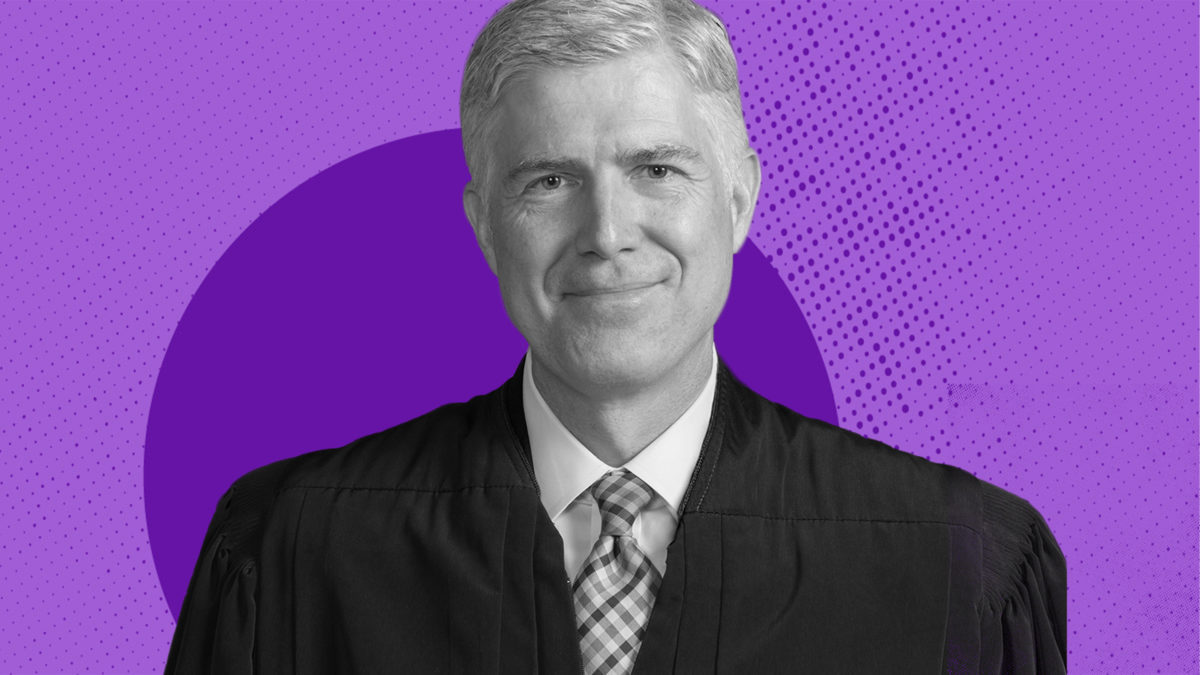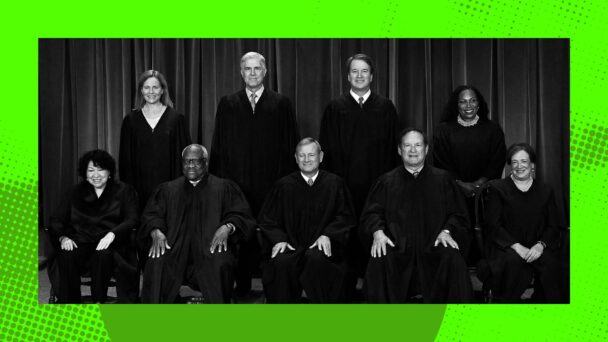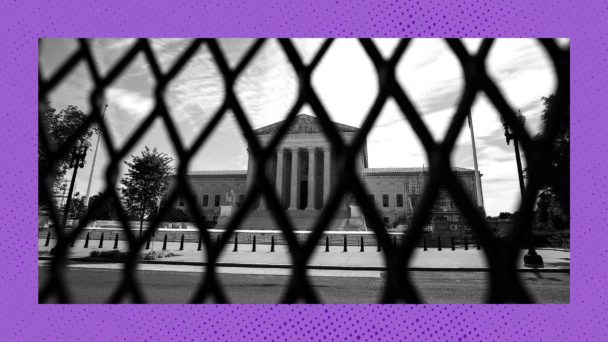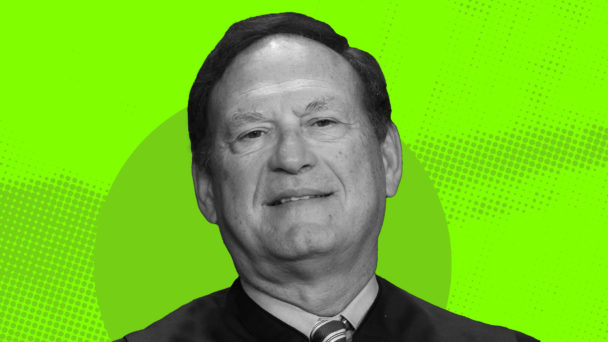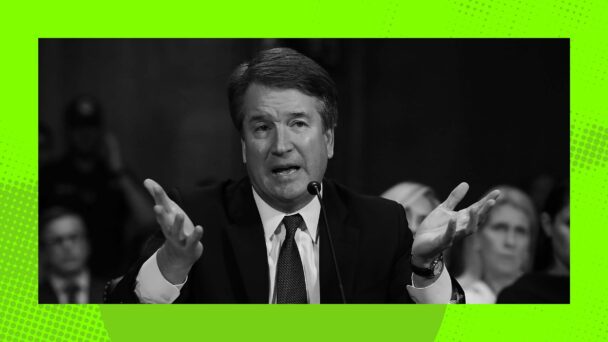About a decade ago, politicians in the small Oregon town of Grants Pass came up with a novel method for addressing homelessness: an ordinance that made anyone found “camping” in a public place subject to civil fines, bans from city parks, and even jail time. As housing prices spiked across the West Coast, Grants Pass was one of many cities where elected officials passed laws just like this one, papering over their inability to care for vulnerable constituents by locking those constituents up instead.
The goal, as the Grants Pass city council president put it, was to make life sufficiently “uncomfortable” for unhoused people such they’d “move on down the road”—not where they would be housed, necessarily, but where they would at least be someone else’s problem.
In 2018, the Ninth Circuit Court of Appeals decided that the Constitution imposes a few modest constraints on such efforts to punish poor people out of existence. In a case called Martin v. Boise, the court decided that if cities do not provide enough shelter beds for everyone who needs one, anti-camping laws constitute “cruel and unusual punishment” and violate the Eighth Amendment. The idea is pretty straightforward: The state should not be able to incarcerate people for the crime of being too destitute to afford a private place to sleep.
On Friday, in a 6-3 opinion written by Justice Neil Gorsuch, the Supreme Court returned to cities the power to formally designate poor people as second-class citizens. The opinion in Grants Pass v. Johnson is an archetypical example of this Court’s brand of brain-dead originalism: hopelessly myopic parsings of constitutional text, hand-waving analysis of relevant precedent, and soaring tributes to the virtues of judicial humility in this one instance where judicial retreat from the policymaking arena just so happens to align with prevailing conservative politics. At one point, Gorsuch explains that the ordinance does not target unhoused people who sleep in parks because it would apply equally to a “backpacker on vacation,” a level of credulity usually reached only by college sophomores going through their embarrassing libertarian phase.
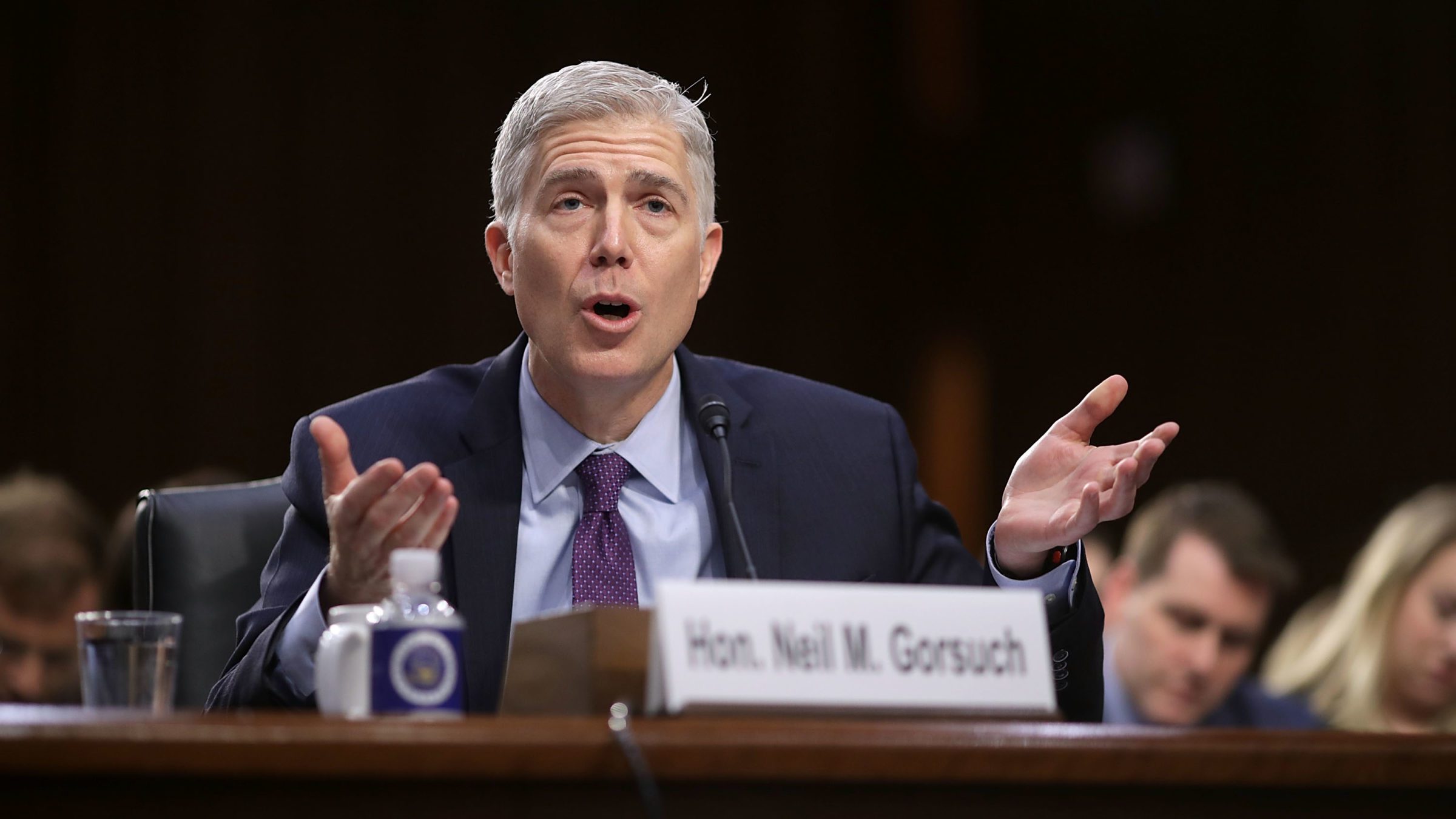
When poor people get rights too (???) (Photo by Chip Somodevilla/Getty Images)
But setting aside the analytical mess, what really sticks out about the result in Grants Pass, particularly in light of the other blockbuster cases of the past few days, is what it reveals about the types of people whom this Supreme Court deems worthy of its time and attention. When the parties begging for relief are white-collar criminals, or crooked politicians, or literal January 6 rioters, the justices will engage in all manner of logical gymnastics to extend the law’s protections. When the people at the Court’s mercy are people with no money, no political power, and nowhere else to go, the conservative justices shrug their collective shoulders. Whoever’s problem those people might be, they are not this Supreme Court’s.
The thrust of Gorsuch’s opinion is what he views as Martin’s overambitious reading of the Eighth Amendment, which, he says, the Framers adopted to prohibit barbaric punishments like disembowelment and burning that had “fallen into disuse.” This, argues Gorsuch, makes the Eighth Amendment a “poor foundation” for a ban on anti-camping ordinances, since fines and terms of incarceration are about as run-of-the-mill as punishments in America get. “Cruel and unusual punishment,” in other words, is about methods of punishment, not conduct that can be punished. Under Grants Pass, because getting a ticket for sleeping in a park in 2024 does not impose the exact same amount of physical pain as being drawn and quartered in the town square in 1521, the Constitution has nothing to say about it.
One challenge for Gorsuch’s crabbed reading of the Eighth Amendment is a 1962 Supreme Court case called Robinson v. California, in which the Warren Court struck down a state law that criminalized “being addicted to drugs.” Since that statute punished a “status”—that is, it punished a person not for their conduct, but for an aspect of their existence—the Court held that the law violated the Eighth Amendment. Relying on Robinson, the Ninth Circuit in Martin concluded that being too poor to afford a home, particularly in some of the most expensive cities in the world, is also a “status” that is beyond the law’s ability to punish.
Gorsuch deals with Robinson as this conservative supermajority often does when confronted with inconvenient precedent: by concluding that, for one reason or another, it doesn’t really count. Robinson, he explains, was “highly unusual,” and “sits uneasily with the Amendment’s terms, original meaning, and our precedent”; the Court, he adds ominously, has not relied on its reasoning in the 60-plus years since. Gorsuch is careful to assert that Grants Pass does not overrule Robinson. But by subjugating it to a new legal rule in which cases he doesn’t like are Too Weird And Too Old To Matter, he quietly accomplishes the same result.
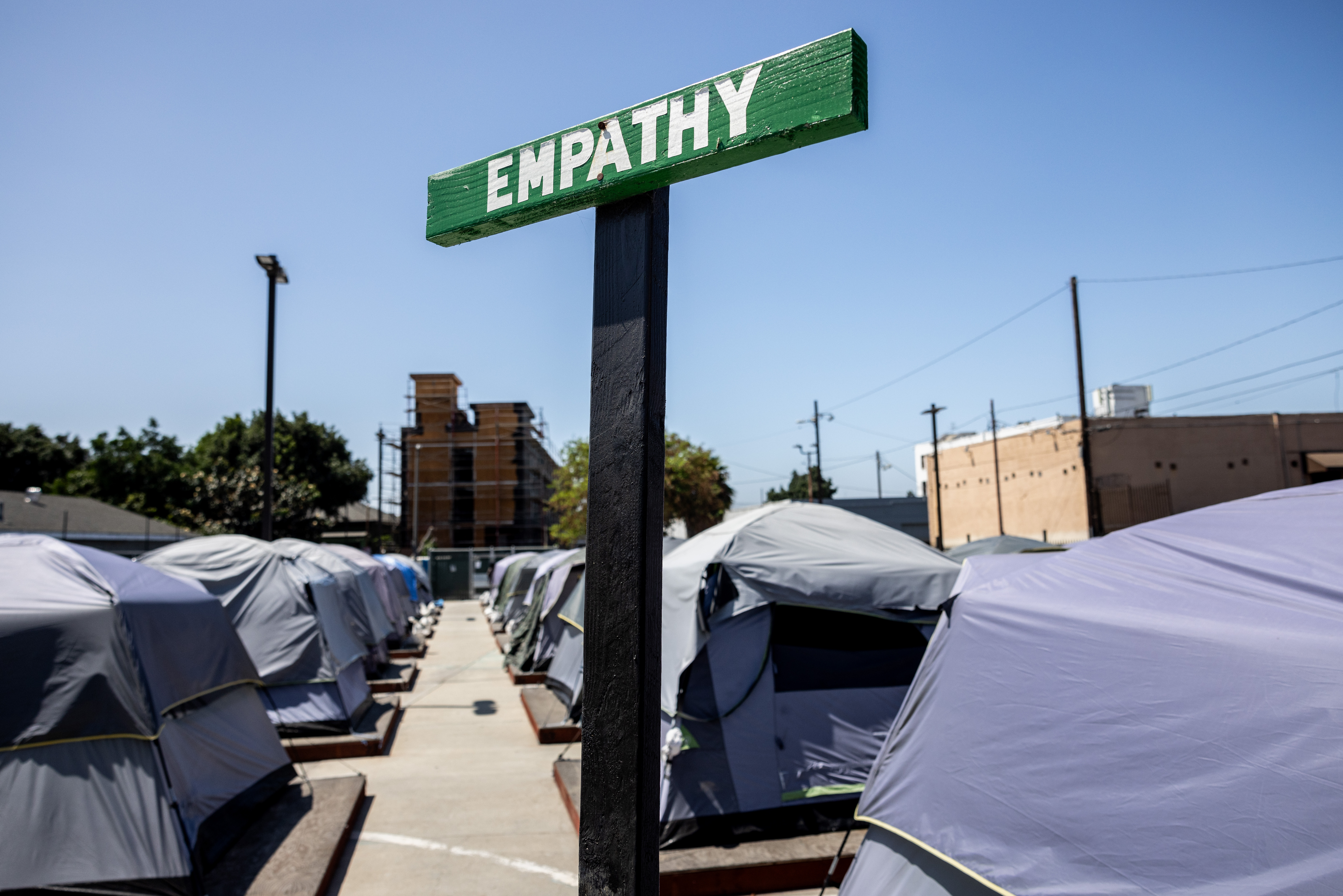
(Jay L. Clendenin / Los Angeles Times via Getty Images)
Throughout, Gorsuch sprinkles snippets of sympathy for the plight of unhoused people, and acknowledges the challenges that cities and states face in helping them. Yet as difficult as these questions may be, the answers “cannot be found in the Cruel and Unusual Punishments Clause,” Gorsuch says. “Nor do federal judges have any special competence to provide them.”
This sanctimonious appeal to judicial humility vastly overstates the upshot of Martin, which, again, only stopped cities from punishing unsheltered people if they did not provide shelter for everyone who needed it. But it also comes on the same day that Gorsuch joined the majority in Loper Bright Enterprises v. Raimondo, a landmark Supreme Court decision that guts the administrative state and transfers vast swaths of policymaking power from the democratically elected branches to the federal judiciary. When the stakes are, say, authorizing far-right federal judges to veto agency rules about air pollution or workplace safety, Gorsuch is eager to dig in; when the stakes are limiting local governments’ ability to drive poor people out of town, Gorsuch cannot wash his hands of responsibility fast enough.
A central tenet of originalism as practiced by this Court’s conservatives is that originalism is not a method of interpreting the Constitution, but the only acceptable one. Gorusch explained as much in a recent concurrence: “Whatever indeterminacy may be associated with seeking to honor the Constitution’s original meaning in modern disputes, that path offers surer footing than any other this Court has attempted,” he wrote in United States v. Rahimi. “Faithful adherence to the Constitution’s original meaning may be an imperfect guide, but I can think of no more perfect one for us to follow.”
The Grants Pass opinion lays bare the moral and intellectual bankruptcy of this argument. When the Framers were drafting the Constitution some 250 years ago, they could not have imagined that the country would one day be home to some 650,000 unhoused people, about 40 percent of whom lack a place where they can keep safe, warm, and dry. They could not have conceived of a society so warped by economic inequality that on any given night, all the nation’s churches and charities and community centers put together would still come up about 188,000 beds short. It would be a challenge to explain to Framers the very existence of California, let alone the fact that California is home to about half of America’s unsheltered unhoused people all by itself.
Even if you assume that Gorsuch’s version of how the Framers understood the Eighth Amendment is descriptively right, a judicial philosophy that blesses debtors’ prisons when applied to the modern homelessness crisis is not worth salvaging, let alone taking seriously. Originalism is always a choice—here, a choice that subjugates the fundamental rights of poor people to a wealthy lawyer’s half-baked best guesses about what some long-dead wealthy white guys would have wanted. There is nothing in the Constitution that compels the result in Grants Pass. There is only the fact that six Republican justices have the power to decree it.
